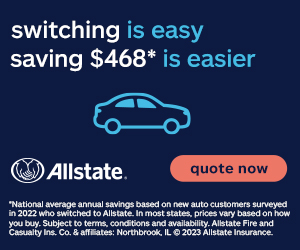What happens around tax time?
As the saying goes, “There are only two guarantees in life: death and taxes.” Since the April 17th filing deadline is quickly approaching, it is vital to determine how your refund will be utilized before it hits your bank account to circumvent impulsive buying decisions. Everyone’s personal financial situations are different. It’s important to do what’s best for you and your family during tax time; having a plan will get you there.
Tax time = buy time
In the fiscal year 2016, the average tax refund was $3,050. If no plan is in place, last minute often frantic buying decisions can occur. Don’t squander hard earned money on unnecessary things! In fact, when it comes to car repair and maintenance, booking services through CarAdvise will help you save that hard-earned money. Undeniably, many companies will try to get a piece of the pie (banks, creditors, retailers, etc). Tax refund season is synonymous for businesses to entice consumers with giant savings and discounts to buy products and services NOW.

The automotive industry is no exception. Having a vehicle is essential for the majority of Americans. 268.8 million vehicles were registered in 2016 with only 8.7% of households without a vehicle. Many personal vehicles seem to be driven to exhaustion, however, the mounting cost of parts and labor, leave folks reticent to get service until it’s absolutely necessary. This is exactly why the automotive industry is a key player in the tax refund season.
How the auto industry helps you spend your money during tax time
The automotive industry has three main angles: purchasing a new or used vehicle, leasing options, or maintenance packages for existing vehicles. The first two are the most expensive upfront but sometimes necessary options. Depending upon credit and financial strength, purchasing or leasing may not be an option. To try to combat that, many dealers offer $0 down and financing options ranging upward from 60-84 months. Others may emphasize high trade in values, 0% APR or extended warranties.

Determining whether you or your family can use or afford a new car is a very personal decision. Approaching any dealer or private seller with your budget is key—sticking to that budget is even more pertinent. Know what you can afford and understand even if you get an 80 month loan with 0% interest, monthly payments must be made and budgeted for. Before signing on the dotted line for any vehicle, its imperative to do extensive research on things like: resale value, customer reviews, recalls, or if any tax incentives are available. Similarly, it’s good to look at options for trading your current vehicle in, selling it privately, versus tax credits for donating it.
Getting car maintenance instead
For many, a new/used car is not in the cards, but getting maintenance is. A complete set of tires, a nice detail job, fixing a cracked windshield, or scheduled OEM maintenance packages are great options for vehicles intended to be kept awhile. For others, refund time might be a way to pay for some serious car repairs such as transmission or hybrid battery problems which have resulted in relying on alternative transportation until the vehicle is fixed.

The average car can and should last over a decade so it’s important to preserve its value. Educated consumers always save the most money in the long run. Understand the sales, compare different shops, learn about tax incentives for eco-friendly vehicles, and most importantly don’t make last minute decisions with your tax refund. Go in prepared and leave satisfied.
